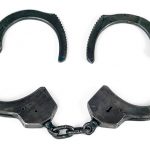The Offence of Misconduct With Regard to Corpses in New South Wales

On Sunday, 6 May 2018 human remains were located in bushland near Laycock Street in the Greater Sydney suburb of Cranebrook.
A forensic examination determined the remains to be those of Cheryl Ardler, who disappeared from the suburb on 12 December 2012.
Ms Ardler’s disappearance had gone unsolved for several years, despite the efforts of detectives from Nepean Police Area Command and the establishment of a dedicated task force, Strike Force Bardsley, to investigate it.
The coronial inquest
In August 2016, the state coroner was tasked with making determinations regarding Ms Ardler’s disappearance.
The inquest heard evidence the 41-year old was last seen with her ‘dangerous’ partner, Walgett man Dennis Andrew French, sporting visible injuries including a ‘black eye’ and ‘busted lip’ in early December 2012.
It further heard several ‘detailed, credible and chilling’ accounts that Mr French repeatedly physically abused Ms Ardler after she moved into his Cranebrook home in mid-2012.
One of the witnesses testified that she saw Mr French punching Ms Ardler, beating her with a stick and stabbing her in the mouth with a fork three days before the woman went missing.
The coroner described the couple’s relationship as ‘extremely violent’ and, despite a body not being found at the time and over 100 posts being published from Ms Ardler’s Facebook account after 2012, determined the woman was likely killed shortly before Christmas Day of that year.
However, police came to the view at the time that they did not have enough evidence to bring criminal charges against Mr French.
Charged with murder
According to police, forensic investigation of samples taken from Ms Ardler’s body implicated Mr French in her death, and he was formally arrested and charged with murder in April 2019.
French later pleaded guilty in the Supreme Court of New South Wales to the offence of manslaughter pursuant to ‘agreed facts’, which included that he subjected her to a violent assault involving the breaking of her jaw.
Mr French was ultimately sentenced to 10 years in prison on 26 November 2021.
The latest charge
At around 9.30pm on Monday, 12 December 2022, detectives from the Unsolved Homicide Unit interviewed a 38-year-old Kingswood man at Penrith Police Station in relation to the incident.
The man was then charged with interfering with a corpse and concealing a serious indictable offence.
While details of the specific nature of the alleged offending conduct are unclear, there is speculation that the man may have assisted the principal offender to move Ms Ardler’s remains and that he failed, without reasonable excuse, to bring the matter to the attention of authorities.
Further details are expected to come to light in due course.
The offence of misconduct with regard to corpses in New South Wales
Misconduct with regard to corpses is an offence under section 81C of the Crimes Act 1900, which carries a maximum penalty of 2 years in prison.
To establish the offence, the prosecution must prove beyond reasonable doubt that:
- You indecently interfered with any dead human body, or
- You improperly interfered with, or offered any indignity to, any dead human body or human remains.
‘Indecent’ has been defined by the courts as, “contrary to the ordinary standards of respectable people in this community”.
‘Interfere’ has been defined as including, ““altering, defacing, removing, obliterating, concealing or adding anything to”.
An ‘indignity’ may be caused where the appropriate respect is not afforded to the body or remains.
The offence applies to both buried and unburied bodies and remains.
Concealing a serious indictable offence in New South Wales
Concealing a serious indictable offence is a crime under section 316 of the Crimes Act 1900 (NSW) which carries a maximum penalty of 2 years in prison.
To establish the offence, the prosecution must prove beyond reasonable doubt that:
- You were an adult,
- You knew or believed a serious indictable offence had been committed by another person,
- You knew or believed you had information of material assistance to secure the arrest, prosecution or conviction of the offender,
- You failed to bring that information to the attention of police or another appropriate body, and
- You did not have a reasonable excuse for your conduct.
What is a ‘serious indictable offence’?
A ‘serious indictable offence’ is one that carries a prison sentence of at least 5 years.
This encompasses most offences contained in the Crimes Act 1900, including larceny, break and enter and robbery offences, drug cultivation, manufacture and supply, fraud, kidnapping, assaults occasioning actual bodily harm or more serious harm, stalking or intimidation and most offences of a sexual nature.
What is a ‘reasonable excuse’?
The section states that a reasonable excuse for not reporting the information includes, but is not limited to, where:
(a) it relates to a sexual offence or a domestic violence offence against the complainant,
(b) the complainant was an adult at the time you received the information, and
(c) you believed on reasonable grounds the complainant did not wish the information to be reported.
Aggravated offences
The maximum penalty increases to 3 years if the offence that you knew about carries a maximum of more than 10 years but less than 20 years in prison.
The maximum increases to 5 years where the relevant offence carries a maximum of more than 20 years in prison.
Exemptions
Certain vocations are exempt from the requirement to the relevant information, as long as that information was obtained in the course of the vocation.
These vocations are:
- Lawyers,
- Doctors and nurses,
- Psychologists,
- Social Workers,
- Clergy,
- Mediators and arbitrators, and
- Researchers for professional or academic purposes.
Defences to the charges
Where you are able to raise evidence of a legal defence to a criminal charge, including interfering with a corpse or concealing a serious indictable offence, the onus then shifts to the prosecution to establish beyond a reasonable doubt that the defence does not apply.
You are entitled to an acquittal (a verdict of not guilty) if the prosecution is unable to do this.
Legal defences to the charge include duress and necessity.
Going to court?
If you are suspect or accused of a criminal offence, contact Sydney Criminal Lawyers anytime on (02) 9261 8881 for expert advice and formidable representation from a team of experienced criminal defence lawyers with an outstanding track record of achieving exceptional results.






